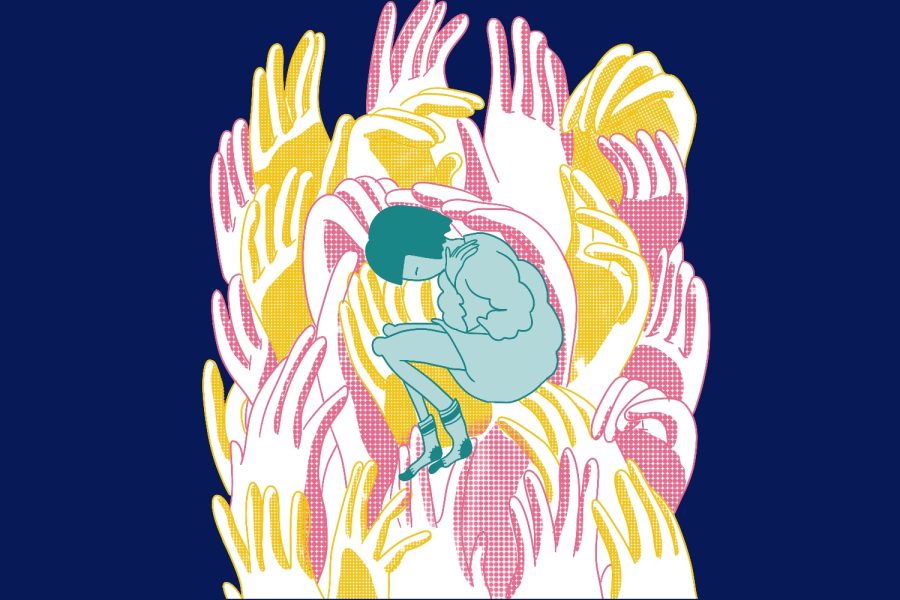Mental health cannot be ignored when tragedy strikes
May 4, 2023
TW: gun violence, mental health
With the prevalence of gun violence in America, it often feels like our generation has been desensitized to the tragedy of mass shootings.
Although we all feel devastated by these events, sometimes it feels like they only happen in a far away place.
Twenty-year-old Kailyn Gillis was murdered for turning into the wrong driveway in Upstate New York on April 15, according to an April 19 BBC article.
The incident occurred only a few miles from my hometown.
It hit me especially hard. She was my age and from my area. I felt like that easily could have been me, or someone I knew.
I find it difficult to know how to handle news like this. I didn’t know her personally, but it impacted me all the same.
I felt similarly terrified when news broke of the Michigan State shooting this February. I kept thinking about how it could’ve occurred at UVM.
Already in 2023, there have been 163 mass shootings in the U.S., according to an April 17 ABC News article. It’s impossible to focus on every single one—if we did, the weight of the devastation would crush us.
However, when an event hits close to home emotionally, it isn’t always as easy to move on. These incidents are powerful enough to cause trauma, and we need to talk about them in order to process and heal.
Worries over school shootings have caused students to face increased levels of anxiety, according to a Sept. 1, 2022 American Psychological Association article.
There is also a correlation between increased mass shooting anxiety and exposure to media coverage of such events, according to the article.
Elementary school students today are facing gun violence trauma. As an elementary education major, I have heard the students I work with express fears of a break-in after a lockdown drill.
I can remember hearing about this issue since I was in elementary school after the Sandy Hook massacre in 2012. I am heartbroken that today’s children are still experiencing the same threats we did over ten years ago.
When I think of my life as a future teacher, I am terrified of one day being in the situation where the lockdown is not a drill. I constantly think about what I would have to say to my students in the event of a tragedy, or what I would tell them to do.
The emotional weight of all of these events has caught up to me recently, even though no one I know has been hurt.
Shootings are one type of event that can cause collective trauma, according to a Sept. 30, 2022 BetterUp article.
Collective trauma is a form of psychological distress faced by a culture or group in response to shared trauma, according to the article.
Despite the widespread collective trauma due to the rise in school shootings, we often struggle to address the emotional aftermath.
Seventy-two percent of adults cited gun violence as a significant source of stress, according to the 2022 Stress in America survey.
Developing healthy coping mechanisms to turn to is essential, now more than ever.
I find that open discussions of our anxieties and fears are necessary for healing.
When a topic is emotionally challenging to discuss with others, writing can be therapeutic.
Journaling can help to reduce anxiety and depression, according to an article by the University of Rochester.
Talk therapy can also be helpful for processing these emotions in a safe space. UVM’s Counseling and Psychiatry Services provides free in-person and telehealth counseling for students, which is a great option for those who do not have access to a private therapist.
Additionally, calling a mental health hotline can be useful for coping, according to an April 11 article from Louisville Public Media.
CAPS also has an on-call counselor, reachable at (802) 656-3340, for those in crisis, according to UVM’s Center for Health & Wellbeing. They also point to other resources such as Chittenden County’s First Call hotline and the state of Vermont’s crisis text line.
Mindfulness exercises and avoiding triggering news coverage are other healthy ways of coping, according to The Jed Foundation.
The constant exposure to mass shootings is something that affects all of us.
While I am not a mental health expert, I know that the first step to recovery is to acknowledge my feelings.
